Are Professional Athletes Addicted to Video Games?
It seems like every other week you hear about how another celebrity or athlete is struggling with addiction.
Usually, the spotlight is on drugs or alcohol. But, more recently, gaming addiction is starting to show up more and more.
You might argue that gaming addiction is preferable to drugs, and strictly from a health standpoint, you may be right. However, there are numerous stories coming to light about how video games have ruined careers, torn families apart, and even caused deaths.
The problem is, while gaming addiction only affects a small portion of the population, there are almost 2.5 billion gamers worldwide.
Couple this with the ease of access to thousands of games thanks to smartphones, it’s no wonder sports stars are turning to gaming as a means to escape their real-world pressures and responsibilities.
What is Video Game Addiction?
Video game addiction is a real mental health condition affecting millions of people around the world.
The World Health Organization recognizes it as gaming disorder and it is “a pattern of persistent or recurrent gaming behaviour, which may be online or offline, manifested by impaired control over gaming, increasing priority given to gaming to the extent that gaming takes precedence over other life interests and daily activities and continuation or escalation of gaming despite the occurrence of negative consequences.”
The difference between a healthy fun gaming hobby and an addiction is the negative impact the activity is having in your life.
Related: Take our video game addiction test
Why Are Athletes Turning to Video Games?
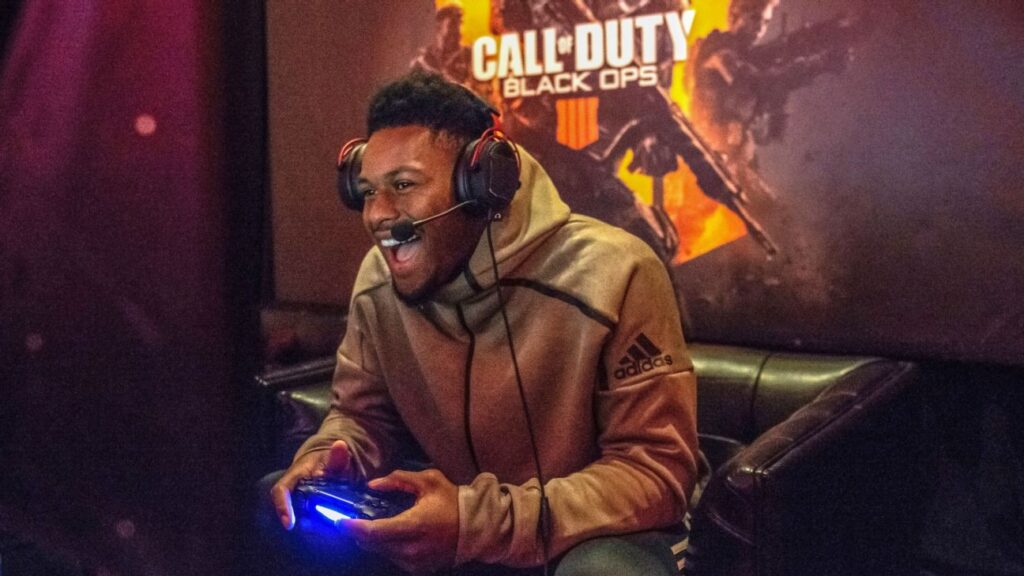
By their nature, athletes are very competitive people. Sports psychotherapist, Steve Pope, spoke about this in an interview on the gaming epidemic plaguing English football:
Footballers have an addictive personality because that’s what makes them good at their job.From an early age at academies, they are conditioned to work for a high, whether that is making a great pass or scoring a great goal. That is the work-for high.
The brain likes that feeling, likes that elation, likes that rush.
But if they are not getting that high from football, they are getting it from something else – alcohol, drugs, gambling or gaming. That is the lazy high. Footballers are trained to be competitive and with the kind of games they are playing, Fortnite or Fifa, they are continually in a competition.
It’s a follow on from playing football.
You could argue that gaming addiction isn’t as serious as an addiction to drugs or alcohol. That just isn’t the case. Regardless of what you’re addicted to, the impacts on your life are still real.
https://twitter.com/camerondare/status/1119982119911030786
So why video games?
Competing at an elite level is an incredibly high-pressure job.
You’re constantly under the spotlight, have scrutiny from fans, and if you don’t perform you could lose your job and career. Couple this with increasingly stringent rules, testing, and regulations for drugs and alcohol, and you find that athletes are finding other outlets to escape in.
At the end of the day, athletes are people too. They need ways to de-stress just like anyone else. However, as gaming isn’t regulated nearly as much as other vices, the habit often goes unnoticed and untreated.
Players are staying up until 4am the day before a match, which undoubtedly affects their performance.
Can you see the problem there?
Players don’t perform so they escape through gaming. Gaming affects their performance so they escape further into gaming…
You get the idea. It’s a constant cycle of self-fueled negative energy that’s only becoming more prominent as time goes on. When 83% of teenagers play video games regularly, our future professional athletes are developing gaming problems early in life.
Athletes Struggling to Escape the Game
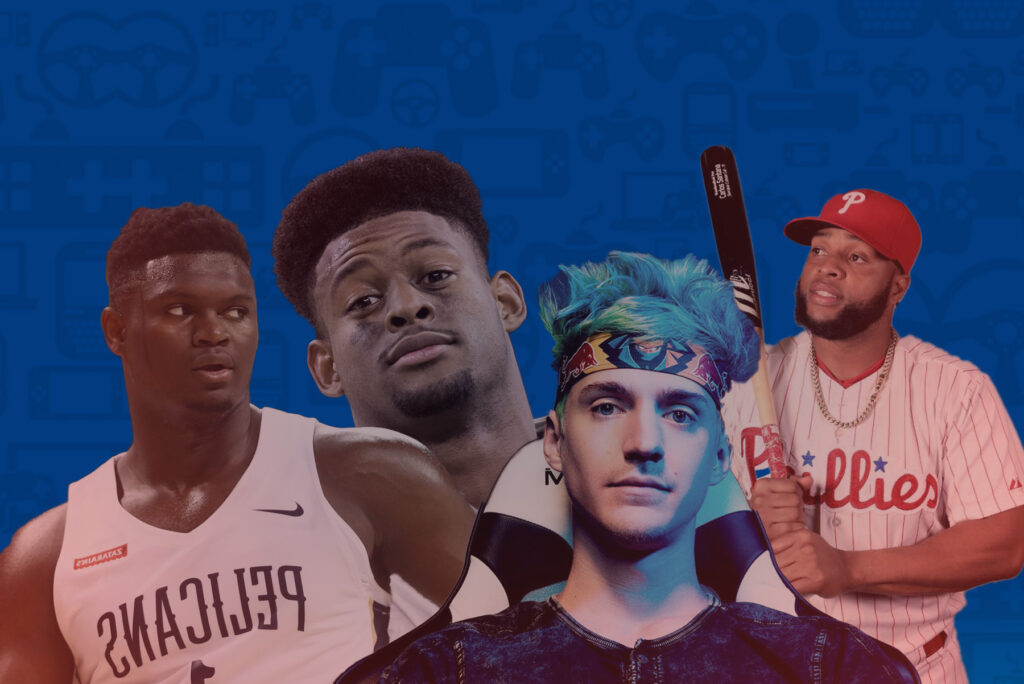
You might think gaming addiction is an issue that only effects a few amateur athletes.
You couldn’t be more wrong. Even players that are at the top of their game are becoming stricken with gaming disorder.
Neil Robertson
We recently featured Neil’s story on our website, it’s a powerful read and definitely worth your time.
Neil was, and still is, one of the greatest snooker players in the world. He became the world number one three times between 2010 and 2014.
Currently, he is sitting at the 4th ranked spot in the world, but his journey hasn’t been without its downfalls.
https://twitter.com/camerondare/status/1161516717077667842
On the surface is the story of a man riddled with talent, success, and everything he could want out of life. However, strip back the exterior and you find a different tale.
A tale rooted in addiction and neglect.
In one interview, Neil commented on his addiction to gaming:
I probably could have won more tournaments […] I was spending time playing video games when I should have been spending it with my family and on the practice tables. I was addicted to League of Legends, World of Warcraft and FIFA. It was ridiculous. I was staying up all night playing these video games.
Neil has a self-acclaimed addictive personality.
When he was younger he became addicted to snooker, and simply replaced that same addiction with gaming. The rest of his story is truly fascinating, so make sure you read the whole of it here: “Neil Robertson Gaming Addiction“
Quinn Pitcock
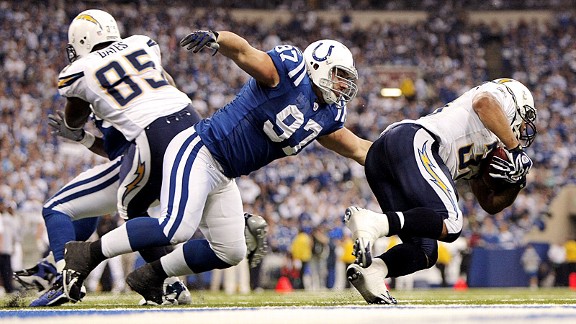
Doug Pensinger/Getty Images
In 2007, after being drafted by the Colts out of Ohio State, Quinn Pitcock was showing all the signs of a promising defensive lineman about to make his mark on the NFL.
This made it all the more puzzling when he unexpectedly announced his retirement before the 2008 season. But it wasn’t drugs or alcohol that had caused the demise of his career, as is so often the case.
As it turns out, Quinn had found himself at the mercy of video games. Surrendering his entire day just to get his fix of Call of Duty – his preferred vice at the time.
He’d even spend up to 18 hours a day gaming, at which point it had taken complete control over his life. In an interview with ESPN he discussed the power of his cravings to play games:
The only way I could get my endorphins was by playing video games. I would break the games, try to get rid of them, but I couldn’t stop. I’d say, ‘Quinn, what are you doing?’ Physically, I could not put down a video game.
This is a struggle faced by everyone that suffers from a video game addiction.
That intense desire to play games, to the point that you physically can’t put the controller down, is hard to describe to people who have never suffered.
Related: How to Deal With Cravings
This is why, despite it possibly being detrimental to their careers, we need more athletes and celebrities to speak out about their problems. It helps to raise awareness of the situation, which is one of the most important things we could be doing to speed up the introduction of treatment for gaming addiction.
Top Players in the English Premier League
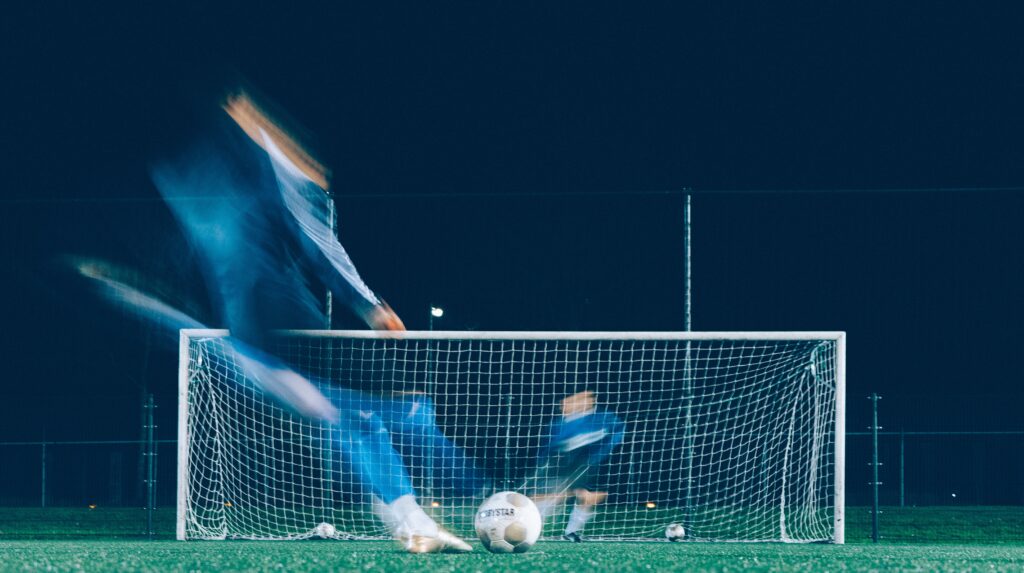
Top athletes like Neil and Quinn are not alone and in recent years a new epidemic of gaming addiction is starting to spread throughout English football.
Top players, who competed in the World Cup for England and play in one of the best teams in the world, are finding themselves spending the entirety of their free time playing games.
One player, who wanted to remain anonymous spoke about the effect of his gaming addiction on his career:
When I get back from training, the first thing I do is turn the Xbox on to play Fortnite.
I play for about eight to ten hours a day, but I once played 16 hours non-stop the day before a match.
It is quite normal for me to stay up playing until two o’clock or three o’clock in the morning.
I get a lot of eye strain, I am tired the next day and I miss training sometimes.
This isn’t an isolated case, either.
Three of Tottenham Hotspurs’ best players – Harry Kane, Dele Alli, and Kieran Trippier – racked up almost 400 hours on Fortnite between them during the World Cup in Russia.
These are players that are under tremendous amounts of pressure, and they should be allowed to de-stress in whatever way they see fit.
However, is spending the majority of your time playing Fortnite the most optimum thing a player at the very top of their game should be doing? When they stay up late playing it brings on eye strain, lethargy, and even back problems.
Related: Parents Guide to Fortnite Addiction
A Prominent NHL Draft Pick

In 2018 a story broke that a prominent young prospect has likely jeopardized their hockey career because they couldn’t stop playing video games.
I’m not gonna say the player’s name. I really doubt he’s going to make it to the NHL, and it’s because of a video game addiction. […] He’ll play until all hours of the night and into the morning and then he’ll have no energy the next day. Like, he’ll be a write-off. And it is that bad.
As a first-round draft pick for a top NHL team, the player was likely going to become a big name in the sport.
It’s not uncommon for NHL players to unwind with a bit of gaming. Josh Hart and Larry Nance Jr. played Fortnite together for over 10 hours straight before a game. Hart even went on to say that his win on Fortnite almost meant more to him than winning the title.
It raises questions as to whether or not gaming will be banned by teams in the near future. It’ll no doubt increase their performance, but at the same time will likely lead to higher levels of stress and frustration from the players.
Especially with athletes starting to stream on Twitch, they’re dedicating less of their time to their sport and more to gaming.
It’ll be interesting to see how it plays out.
Does it Really Matter if Athletes are Addicted to Gaming?
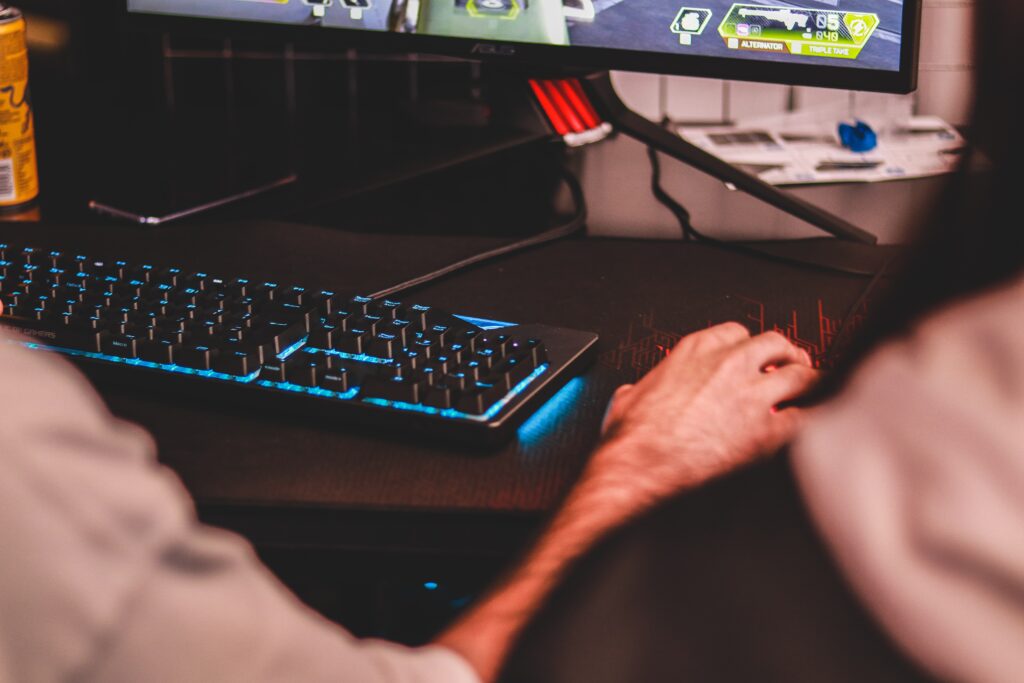
You might be reading this and thinking “Who the hell cares? They earn millions a year they can do what they want.”
In one sense, you’re right. They can do whatever they want. But should they?
Consider these athletes are respected and looked up to by a large number of young people. If they see that their favourite sports stars are playing Fortnite for 10 hours straight every day, they might not see any harm in doing the same.
The risks posed to children who spend an excessive amount of time in front of a screen are well documented. It results in lower psychological well-being, exposes kids to gambling, and even affects mood with links to attention-related disorders.
There might not be anything wrong with an hour or so spent playing games every day, but children are incredibly sensitive to over-stimulation. They don’t know the difference between healthy and unhealthy, all they know is that games make them feel great.
When you try to reduce the amount of screen-time, after a child has become used to a certain way of living, it usually ends with extreme mood swings and even violent tendencies.
In our parent support group on Facebook, we see countless stories from mothers and fathers about how their child has threatened all manner of things if they tried to take their gaming away.
It’s easy to blame the parents for not being more strict, but it’s very different saying that and actually being in the situation.
No doubt kids will use their favourite athlete’s gaming habits to justify their own. Something we commonly saw with the Fortnite World Cup.
What’s in Store for the Future?
All that we can hope as a result of athletes struggling with gaming addiction, is an increase in awareness and support of a problem that affects millions of people worldwide.
Once the proper support systems are in place, we can go about developing treatment programs for those in need.
The WHO’s decision to classify Gaming Disorder was a huge step forward. We’ve also seen a huge increase in exposure from the media and celebrities about the extent of video game addiction.
Even so, we’re a long way away from where we want to be in the future.
There’s still a lot of work to do. Not just here at Game Quitters, but for families all around the world who are affected.
